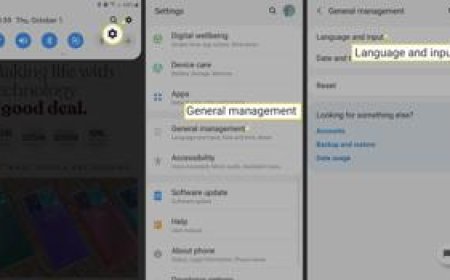Blockchain-Based Academic Credential Verification Apps Created by a Mobile App Development Company in the UK
Verifying academic credentials has become harder in today’s digital world filled with fake degrees and unverifiable claims. Blockchain-based apps, developed by a mobile app development company in the UK, are now solving this problem with secure, tamper-proof digital certificates.

In an era where digital diplomas can be photoshopped in minutes and LinkedIn profiles polished with unverifiable degrees, verifying academic credentials has become a serious challenge. Universities are global, resumes are digital, and academic fraud is on the rise. Employers, universities, and government agencies are all scrambling for solutions.
Thats where blockchain technology steps in offering transparency, permanence, and trust. And whos behind bringing this vision to life? A new wave of mobile app development company in the UK are stepping up to build cutting-edge credential verification platforms, using blockchain as their backbone.
Lets explore how these apps are changing the game and why software development companies are now essential players in the education tech space.
What Is Blockchain-Based Academic Credential Verification?
At its core, blockchain is a digital ledger an unchangeable chain of records stored across a decentralized network. Every credential recorded here becomes timestamped, transparent, and tamper-proof.
When applied to academic credentials, it means that once a diploma or certificate is issued and recorded on the blockchain, it becomes a permanent and verifiable part of a student's history no more calling the registrars office or waiting weeks for email confirmations.
Real-World Problem, Real-World Solution
Imagine a student from Pakistan applying to a job in the UK. The employer needs to verify the applicants degree from a foreign university. This process can take days or even weeks. But with a blockchain-based verification app? One scan. Instant results. Full trust.
Thats exactly what a mobile app development company in the UK is now making possible.
Why the UK Is Leading the Charge
A Hub of Education and Innovation
The UK is home to some of the most prestigious universities in the world, from Oxford and Cambridge to Imperial College London. It also boasts a booming tech scene, with London being a major startup hub. This convergence of education and innovation is perfect ground for blockchain-based solutions.
Many software development companies based in the UK are actively collaborating with educational institutions, government bodies, and employers to bring these solutions to life.
Government Support for EdTech and Blockchain
The UK government has shown increasing interest in blockchain. It supports the use of digital identity, secure records, and smart contracts in sectors like education, healthcare, and finance. For a mobile app development company in the UK, this means fertile ground to develop, test, and deploy credential verification apps that meet both local and international standards.
How These Blockchain Credential Apps Work
Issuing the Credential
When a student graduates, their university uses the app to issue a blockchain certificate. The digital record is uploaded to the blockchain, including the students name, course, graduation date, and grade all digitally signed and verifiable.
Sharing and Verification
The student receives a digital certificate in the app and can share it with employers, universities, or agencies. The receiver can instantly verify the certificate using the apps blockchain scan tool no middlemen, no forged documents.
Permanent and Portable
Once uploaded, these credentials are permanent and globally portable. Whether you're switching jobs, moving countries, or applying for higher education, your academic history travels with you in your phone.
Features That Make These Apps Stand Out
Tamper-Proof Digital Certificates
These are not just PDFs with a seal. Each certificate is cryptographically secured and immutably recorded. No one not even the issuing university can alter the record once it's on the blockchain.
QR Code-Based Verification
Employers can scan a QR code embedded in the digital certificate and verify its authenticity instantly. This removes delays and adds a layer of digital trust to the hiring process.
GDPR and Privacy Compliance
A major concern with blockchain apps is data privacy. Fortunately, software development companies in the UK are well-versed in GDPR compliance. These apps often store only hashes of certificates meaning sensitive student data never leaves the user's device.
The Role of Mobile App Development Companies in the UK
End-to-End Solution Providers
A mobile app development company in the UK doesnt just build the app. They provide a full-stack solution: front-end design, backend blockchain integration, smart contract development, cloud storage, and security architecture.
Custom Solutions for Universities and Employers
Each client whether a university or a multinational HR team gets a custom app tailored to their ecosystem. From branding to multi-language support to integration with student information systems, UK developers are delivering powerful, modular apps that scale.
Cross-Platform Apps for Accessibility
These apps are often designed for both iOS and Android, ensuring accessibility across devices. Most apps are also cloud-synced and offer desktop portals for universities and recruiters.
Benefits for Key Stakeholders
Students
-
Own and control their credentials
-
Easily share verified achievements
-
Build a digital academic identity
Employers
-
Instantly verify candidate claims
-
Avoid hiring fraud
-
Streamline onboarding
Universities
-
Reduce administrative overhead
-
Protect reputation from fake degrees
-
Showcase innovation
Case Studies: UK-Based Blockchain Credential Apps in Action
Digicerts by a London-Based Developer
A prominent mobile app development company in the UK launched DigiCerts for a group of British universities. The platform allowed graduates to receive digital diplomas within 24 hours of convocation. Over 40,000 credentials were issued in the first year and 98% of them were verified within a minute by hiring companies.
GlobalGrad: Cross-Border Verification Tool
Another example is GlobalGrad an app created in collaboration with international universities and powered by a blockchain backend. It allowed students to store multiple credentials and submit them to graduate schools and companies across the globe instantly and securely.
Challenges in Implementation
Integration with Legacy Systems
Many universities still rely on legacy student management systems. Integrating blockchain apps without disrupting operations is a technical and logistical challenge.
User Training and Adoption
Not all users are familiar with blockchain technology. These apps must be simple, intuitive, and well-supported with documentation to encourage adoption by faculty and administrative staff.
Regulatory Ambiguity
While the UK supports digital innovation, there are still gray areas when it comes to recognizing blockchain credentials legally in some contexts. Software development companies must stay agile and align with emerging policies.
The Future: Blockchain as the New Academic Currency
Micro-Credentials and Lifelong Learning
These apps are also evolving to include micro-credentials, short courses, and even online bootcamp certificates. As lifelong learning becomes the norm, the demand for verifiable, portable achievements will skyrocket.
AI + Blockchain for Smarter Verification
Some mobile app development companies in the UK are now exploring AI-powered verification using machine learning to analyze academic records, detect anomalies, and ensure integrity at scale.
Integration with Digital Wallets
Academic credentials could soon live inside your digital wallet, alongside your driver's license and passport. Thats where the next generation of blockchain-based apps is headed and UK developers are leading the way.
Conclusion: Trust, Efficiency, and Innovation in One App
Academic verification doesn't need to be a nightmare of paperwork and international calls. With the right technology and the right developers it can be a seamless, secure, and empowering process for everyone involved.
Thanks to visionary software development companies and every forward-thinking mobile app development company in the UK, blockchain-based academic credential apps are no longer just a futuristic idea. They're here, they're working, and theyre already changing lives.
Whether you're a university dean, a tech-savvy student, or a recruiter trying to speed up hiring, these apps offer something for everyone: trust.









































